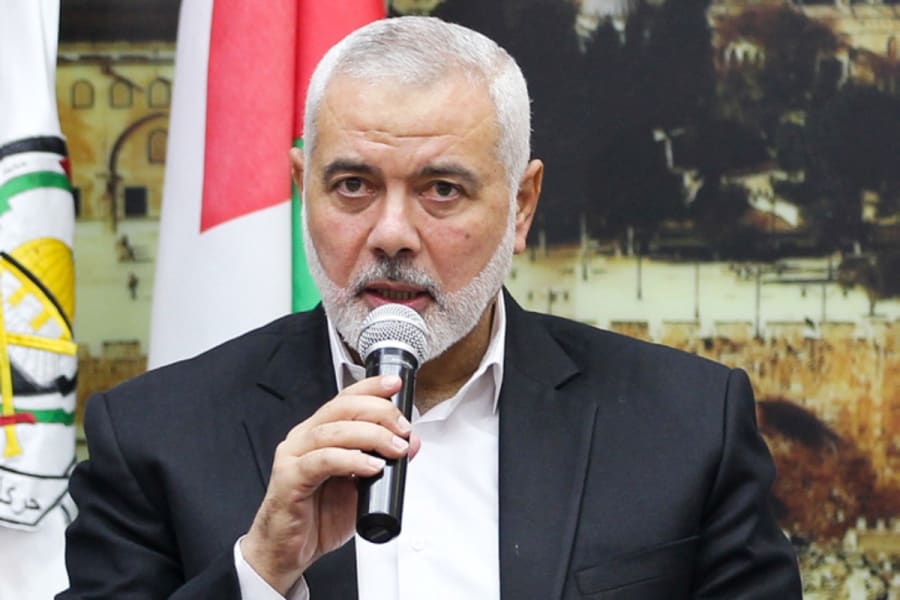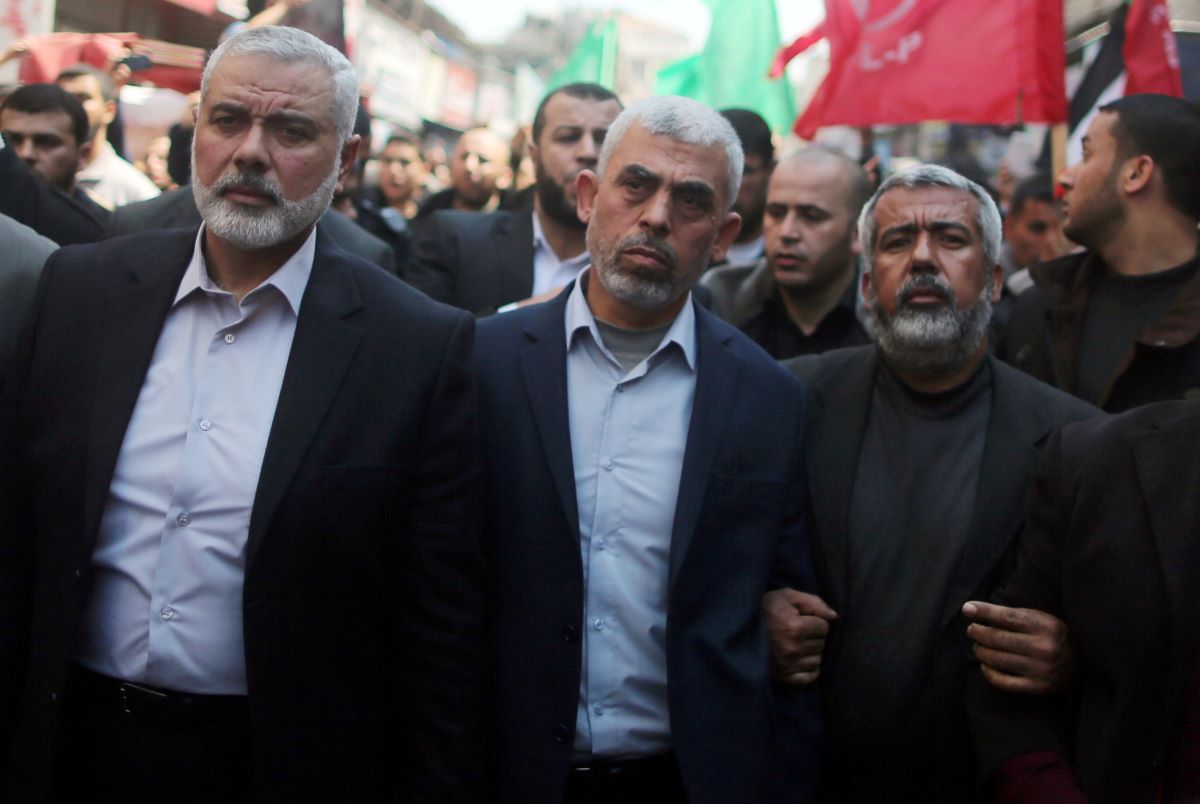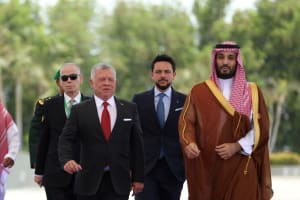Who was Ismail Haniyeh – Hamas political leader killed in Tehran?

At the time of his death in Tehran, where he attended the swearing-in of newly-elected Iranian President Masoud Pezeshkian, Ismail Haniyeh was nominally the highest-ranking leader of the Hamas terror organization.
Before becoming the Chairman of the Hamas Political Bureau, the 62-year-old leader had his start, like many Hamas leaders, in the Gaza Strip.
Born in 1963 in al-Shati to parents who left their homes in Ashkelon, Israel, during the Jewish state's War of Independence in 1948, Haniyeh grew up in Gaza. He attended the Islamic University of Gaza, which grew out of the al-Azhar Institute, earning a degree in Arabic literature.
During his time at university, Haniyeh was a member of an Islamic student group associated with Hamas founder Ahmed Yassin.
Just after graduating in 1987, when the First Intifada began in Gaza, Haniyeh took part in the demonstrations. He was arrested multiple times by Israeli authorities after joining the newly formed Hamas group. He was deported to southern Lebanon in 1993 along with other Hamas leaders.

However, this exile was short-lived, as Haniyeh returned to Gaza the following year.
In 1997, Haniyeh became the assistant to Hamas founder Sheikh Yassin, and quickly gained prominence in the movement, being appointed as Hamas’ representative to the Palestinian Authority (PA).
In 2003, Haniyeh was almost killed in an IDF airstrike targeting Yassin. The following year, Israel successfully targeted Sheikh Yassin and his successor, Abdel-Aziz Rantissi.
Haniyeh, and two other Hamas officials, were then appointed as “collective leaders.”
During the January 2006 Palestinian elections, Haniyeh headed the Hamas "List of Change and Reform,” and after its victory, was nominated as PA prime minister, rising to international prominence following his appointment.
Intense fighting between the Fatah party and Hamas over control of the PA took place in 2006 and 2007. Following the bloody Battle of Gaza in 2007 between the two groups for control over the Strip, Hamas gained de facto control over Gaza, and Haniyeh assumed political leadership.

In 2016, Haniyeh left Gaza and took up residence in Qatar, where he kept an official Hamas office in the capital of Doha after being named the political leader in place of Khaled Meshaal.
The leadership of Gaza was assumed by military commander Yahya Sinwar, who, along with Mohammed Deif, is considered to be one of the chief architects of the Oct. 7 attacks.
After his appointment, Politburo leader Haniyeh was named a “specially designated global terrorist” by the United States.
Haniyeh worked to improve ties with Turkish President Recep Tayyip Erdoğan and, in 2020, the two met in person, beginning a new period of open Turkish support for Hamas, including hosting several Hamas leaders staying in the country. Erdoğan has repeatedly refused to condemn Hamas attacks against Israel or to call Hamas a terror organization. Haniyeh visited Turkey frequently as relations warmed between Hamas political leadership and the Turkish government.
Haniyeh also maintained a close relationship with the regime, where he frequently traveled to meet with Iranian leadership. Haniyeh met with the head of the Islamic Revolutionary Guard Corps’ Quds Force Commander Qassem Soleimani on several occasions, both in Iran and in Gaza.
Soleimani was instrumental, both in providing arms to Hamas and Palestinian Islamic Jihad, as well as supporting the work of constructing the tunnel system under Gaza and building weapons workshops.
On Oct. 7, Haniyeh, who was visiting Turkey at the time, gave a speech blaming Israel for the invasion and massacre.
“How many times have we warned you that the Palestinian people have been living in refugee camps for 75 years, and you refuse to recognize the rights of our people?” he asked.

Following the attack, Haniyeh had been a key figure, participating in international negotiations regarding the conflict, including the hostage release ceasefire negotiations.
The Gaza War has also affected Haniyeh personally. In April, one of Haniyeh's sisters, who lives in Israel and is married to an Israeli Bedouin, was arrested by Israeli police for supporting terror activities.
Just one week later, three of Haniyeh’s sons were killed in an Israeli strike near Gaza City in April, with Israel providing evidence that all three were military operatives with Hamas. Haniyeh stated that their deaths would have no effect on the hostage negotiations.
In June, another one of Haniyeh's sisters was killed in an Israeli airstrike on property owned by the Haniyeh family in al-Shati.
Haniyeh had recently spoken with Qatari and Egyptian mediators at the beginning of July. His death is expected to have a significant influence on the hostage negotiations, as he was seen as the principal Hamas figure in the discussions.

J. Micah Hancock is a current Master’s student at the Hebrew University, pursuing a degree in Jewish History. Previously, he studied Biblical studies and journalism in his B.A. in the United States. He joined All Israel News as a reporter in 2022, and currently lives near Jerusalem with his wife and children.
You might also like to read this:














